07
2013What Do We Like About Art?

This is a question which would struggle to produce a definitive answer. Not all art is liked, but because it contains such a wide variety, it means there is always an art form for everyone – that is the beauty of art. Whether we like it or not, we can’t deny its ability to provoke personal interpretations, opinions and feelings from us. Art feeds the senses.
Before I dig further into the answer of this question, first, I need to face a much tougher question – what is art? The definition of art is open, subjective and debatable. There is no agreement among historians and artists, which is why we are left with so many definitions of art. The definition, as a concept, has dramatically changed over the years. In the early centuries, there was more of an agreed view of what art was and what its role in society was.
The 20th century was a turning point in our conceptions of art, which is mainly why contemporary artists frequently reach for new ideas, break with tradition and reject classic notions of what is beautiful in art. All these factors helped give birth to abstract art. The artist no longer felt the need to reflect reality, but rather tries to convey expression and emotion through form and colour. Mark Rothko, an American artist who described himself as an “abstract painter”, once said that he was not the kind of person interested in the relationship of form, shapes or colours. He didn’t define himself as an abstractionist, but rather as a person interested only in expressing basic emotions such as doom, tragedy, ecstasy and so on.
The old definitions of art have become obsolete. Today, art is an evolving and global concept, open to new interpretation, too fluid to be pinned down. Personally, I think art is a way of life. We live in a world full of imagery, colours and symbols. We read and use imagery as a language; a form of communication; a medium to share information between one another. Art is a powerful form of imagery which generates an emotional response from the viewer and creates a unique, personal attachment to it. It is this connection that we like, and more importantly, need in life.
Every child is an artist. The problem is how to remain an artist once we grow up.
– Pablo Picasso
I believe creating art is a natural human behaviour. As children, we instinctively use art to communicate, not specifically to others, but as a way of conveying and expressing our feelings. It is our primary language before we even learn how to speak properly. It is this transcending quality that I like most about art – its freedom for the user to portray emotion in a much more creative way than any other form of language or communication. Art is universal. It is a language all cultures can understand and interpret.
Art is the Queen of all sciences communicating knowledge to all the generations of the world.
– Leonardo Da Vinci
The left-brain, right-brain dominance theory states that the right side of the brain is best at expressive and creative tasks. Some of the abilities that are popularly associated with the right side of the brain include expressing emotions, reading emotions, colour, images and creativity, all of which are fundamental aspects of art. Whether or not we are left-brain or right-brain dominant, we have a natural biological connection to associations with art. We all have a creative side and it is this that creates an appreciation for art, whether we are making it, or creating it.
Put very simply, art it is a part of who we are, and a part of the world we live in. It is a tool for creativity, communication, expression, emotion and so much more. I think by digging deep enough and discovering the true foundations of what makes us connect with art, I have found the answer to what it is we actually like about art. I will finish with this quote from Wilde’s ‘The Decay of Lying’, which for me sums up art’s importance in life.
All that I desire to point out is the general principle that Life imitates Art far more than Art imitates Life, and I feel sure that if you think seriously about it you will find that it is true.
– Oscar Wilde


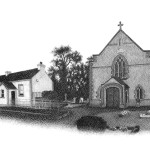
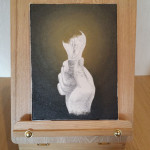
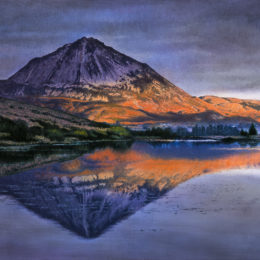
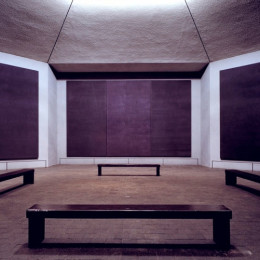

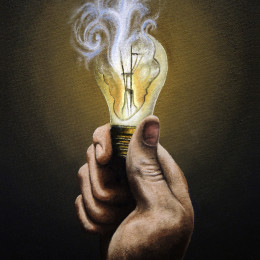
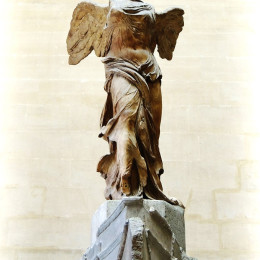
Patricia J Finley
This was beautifully said. Thank you. I think I’ll bookmark this to remind myself of the importance of what I do.
Pat
Conor O'Brien
I’m glad you liked it Patricia.
Cathy McIntire
I first heard the question, “What is art?” as a college freshman in one of my art classes. There was much discussion then as there seems to be now. My conclusion? Art is creativity. Creativity is art. That doesn’t mean it’s good art, but pretty much any creative thought or action is art on some level. As you said, it is a part of who we are.
What frustrates me is the lack of understanding by non-artists that art is so much a part of our daily lives. For many people art is simply the picture on the wall. We have ended up with little to no art in schools, leading to a lack of artistic (creative) development, and most importantly, the development of creative thinking for kids.
I keep trying to figure out how to explain art to people who don’t care, in a way that gets through, so they will at least think about it, and then start to see the art around them.
Conor O'Brien
I agree Cathy. In many ways, art and creativity are basically the same thing.
Most people don’t take the time to really think about what art is. They think that ‘art’ are the things they see in museums and galleries, when in fact, art is all around us.